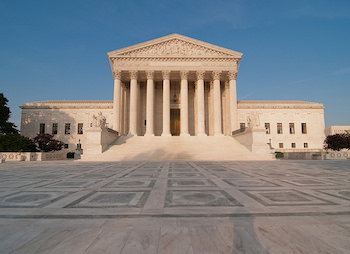Empty Supreme Court Seat Could Sow a Whirlwind of Confusion
Antonin Scalia's death has left an even number of justices on the bench. Now, a potential tie vote in a challenge to an Obamacare mandate highlights the trouble that could result. Mark Fischer/Flickr
Mark Fischer/Flickr
Remember a Supreme Court decision back in 2014 in which Hobby Lobby, the craft store chain, sued the government? The reason for the suit was that, under the Affordable Care Act (ACA), the chain’s group health care plan was required to provide insurance coverage for contraception—something that didn’t sit well with the Christian-run business.
The 5-4 decision in Burwell v. Hobby Lobby Stores gave employers the right to deny contraception benefits to their employees if the employers objected to doing so on religious grounds.
But religiously minded nonprofits—as opposed to for-profit businesses such as Hobby Lobby—still weren’t satisfied.
That brings us to Zubik v. Burwell, which consolidates seven separate cases involving religiously affiliated nonprofits. In Zubik, the plaintiffs claim that an “accommodation” allowing them to opt out of the ACA contraception mandate—by simply sending a letter or filling out a form—is a burden on their religious liberties.
As the website Slate sums it up, “In these seven consolidated cases, the nonprofit objectors have claimed that the very act of filling out the form requesting the accommodation, or notifying the government, itself triggers something they deem to be a sin.”
The Supreme Court heard oral arguments Wednesday, and SCOTUSblog reports:
On an eight-member Court, with the late Justice Antonin Scalia not yet replaced, it was clear going into the Justices’ fourth review of a major controversy over the ACA that there was at least a possibility of a four-to-four split. Four Justices remain from the majority, and four from the dissent, in the ruling two years ago that limited the government’s power to provide free contraceptives to the employees of for-profit businesses with a limited ownership by religiously devout families objecting to some forms of ACA-mandated birth control. …
A four-four split would actually set no precedent and it would not resolve the existing conflict among appeals courts on the validity of the mandate under the Religious Freedom Restoration Act. Eight appeals courts have sided with the government, but one—the U.S. Court of Appeals for the Eighth Circuit—had ruled in favor of the religious non-profit institutions’ challenge to the ACA mandate.
Such a conflicting decision, as Slate notes, is “precisely the type of confusion Supreme Court review was designed to avoid.” The lawyers representing these nonprofits argue that female employees would still be able to obtain birth control, but—as Truthdig has previously reported—these employees may face more hurdles and higher costs. This case is another example of how the lack of a ninth Supreme Court justice may have a major impact on legislative battles across the country—and, in some cases, affect millions of women.
—Posted by Emma Niles
Your support matters…Independent journalism is under threat and overshadowed by heavily funded mainstream media.
You can help level the playing field. Become a member.
Your tax-deductible contribution keeps us digging beneath the headlines to give you thought-provoking, investigative reporting and analysis that unearths what's really happening- without compromise.
Give today to support our courageous, independent journalists.






You need to be a supporter to comment.
There are currently no responses to this article.
Be the first to respond.